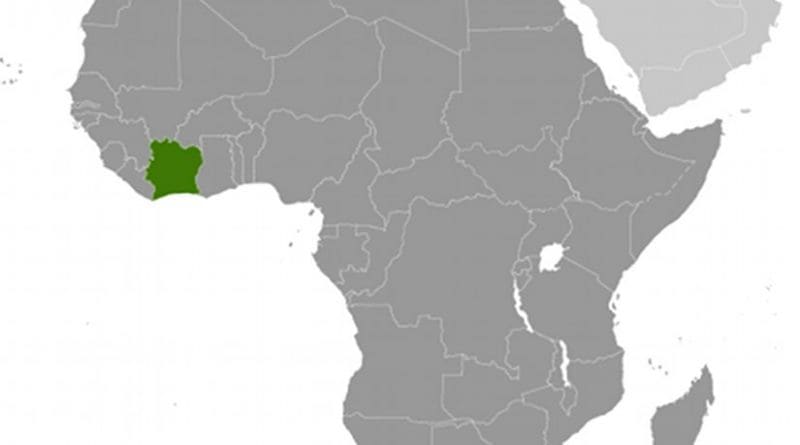Portugal And Ivory Coast: Is There Any Interest In Deepening Bilateral Relationship? – Analysis
By IPRIS
By Paulo Gorjao*
Côte d’Ivoire’s Minister of Foreign Affairs, Charles Diby, visited Portugal between 16 and 18 March to bolster bilateral relations.1 As it often happens during these occasions, the visit had a dual focus: economic and politico-diplomatic.
On the first day, Diby participated in a seminar co-organized by AICEP and its Côte d’Ivoire’s counterpart, CEPICI, with the aim of strengthening economic and trade relations between both countries. Côte d’Ivoire is a significant exporter of agricultural products in the African continent and has promising mining and hydrocarbons sectors, providing a favorable environment for investors. At the same time, the nation’s regained political stability has contributed to the acceleration of domestic and foreign investment, playing a big part in boosting regional trade.2 Côte d’Ivoire recorded an economic growth of 9.8% in 2012, and around 10% to 12% in 2013 and 2014, respectively,3 which is well above the 6% average in sub-Saharan African countries.
Currently there are some Portuguese companies operating in Côte d’Ivoire, namely in the construction industry.4 In normal circumstances, it is the field of public works that may arouse the greatest Portuguese interest—taking into consideration the ongoing public investment in infrastructures in the African country. However, having said this, since economic and trade relations between both countries have not been fully developed, it is worth noting the huge growth potential in the medium and long-term. In the short-term, however, neither economic nor trade relations will be the main drivers behind the two countries’ bilateral relationship. In other words, al- though Portugal is unquestionably interested in deepening its economic diplomacy with Côte d’Ivoire, currently it is not the main priority.
Portugal is mostly interested in exploring and deepening the politico-diplomatic front. Accordingly, Diby’s expressed intention of deepening cooperation between both countries, accompanied with the public announcement that Côte d’Ivoire is soon to open an embassy in Lisbon, is in the Portuguese government’s point of view, good news. During the meeting held with his counterpart, the Portuguese Minister of Foreign Affairs, Rui Machete, promised to reopen the Portuguese diplomatic representation in Abidjan as soon as possible,5 something which, at best, will definitely not happen before 2016.
For Portugal, Southern Africa is the most important region in sub-Saharan Africa. Despite not having the same politico-diplomatic weight, West Africa nevertheless is significantly relevant to the Portuguese foreign policy. For one simple reason: it is located at the centre of important Portuguese interests— direct and indirect—and also concerns the interests of some of Lisbon’s main African and European partners.
In addition, the strategic location of Cape Verde and GuineaBissau in West Africa is more than enough to attract Portugal’s attention. For historical, cultural, political and economic reasons, both countries are important for Portugal, as well as for the diplomacy of the other Portuguese-speaking countries, especially Angola.6 Portugal has therefore direct and indirect interests in Cape Verde and Guinea-Bissau. Both are important for Portugal and also relevant for third-parties, in and outside West Africa. Conversely, given the fact that the region is important to relevant Portuguese partners, namely the Portuguese- speaking countries and some European ones—France, Spain, the United Kingdom, and others— it should therefore also be the case in relation to Portugal.
Within the framework of a wider strategy, Portugal has every interest in diversifying diplomatic relations with sub-Saharan Africa, namely in West Africa. As I have pointed out—although in a different context—,7 Portugal’s politico-diplomatic and economic relations with other sub-Saharan countries are excessively centered in the Portuguese-speaking African countries (PALOP in the Portuguese acronym). It would be extremely beneficial, both for Portugal and the PALOP—the same applies to the European Union— if Portuguese diplomacy succeeded in deepening bilateral relations with some crucial partners in West Africa, such as Côte d’Ivoire.
What is more, there is no lack of issues of mutual concern: instability in West Africa, the Sahel and the Gulf of Guinea, coupled with phenomena such as the Ebola virus, terrorism and piracy, all of which present a plethora of opportunities for bilateral cooperation. In the aftermath of Diby’s visit, it is now Portugal that bears the responsibility to proceed with the approximation effort. Naturally, that can only happen if there is political will to do so.
About the author:
* Paulo Gorjao, Portuguese Institute of International Relations and Security (IPRIS)
Source:
This article was published by IPRIS as IPRIS Viewpoints 169 (PDF)
Notes:
1 See “Coopération Côte d ́Ivoire-Portugal” (Ministério dos Negócios Estrangeiros da Costa do Marfim, 19 March 2015); and, “Rui Machete recebe o ministro dos Negócios Estrangeiros da Costa do Marfim” (Governo de Portugal, 13 March 2015).
2 “Moody’s assigns first-time B1 issuer ratings to Government of Côte d’Ivoire; positive outlook” (Moody’s, 8 July 2014).
3 “Portugal e Costa do Marfim – Reforço das Relações Económicas e Comerciais” (AICEP: Governo de Portugal, 16 March 2015).
4 “Costa do Marfim vai abrir embaixada em Lisboa” (Lusa, 17 March 2015).
5 “Coopération Côte d ́Ivoire-Portugal” (Ministério dos Negócios Estrangeiros da Costa do Marfim, 19 March 2015). Worth adding that at the beginning of 2015 Rui Machete announced the opening, still during the same year, of new embassies in Azerbaijan, Kazakhstan, Equatorial Guinea, Panama and Kenya, as well as a new consulate in Canton, China. See “Portugal vai abrir embaixadas e representações diplomáticas em seis países” (Lusa, 6 January 2015).
6 See Gustavo Plácido dos Santos, “A centralidade geopolítica subsaariana no desenvolvimento e consolidação institucional da Guiné-Bissau” (IPRIS Comentário, No. 20, 1 April 2015).
7 Paulo Gorjão, “Portugal and Ghana: The Gateway to West Africa?” (IPRIS Viewpoints, No. 113, January 2013).

